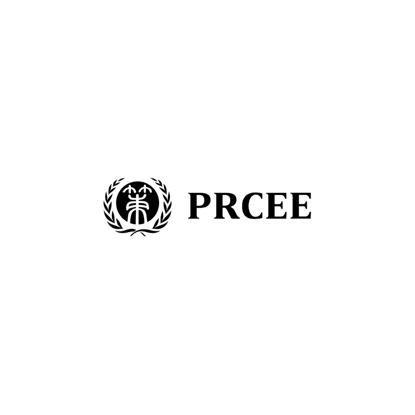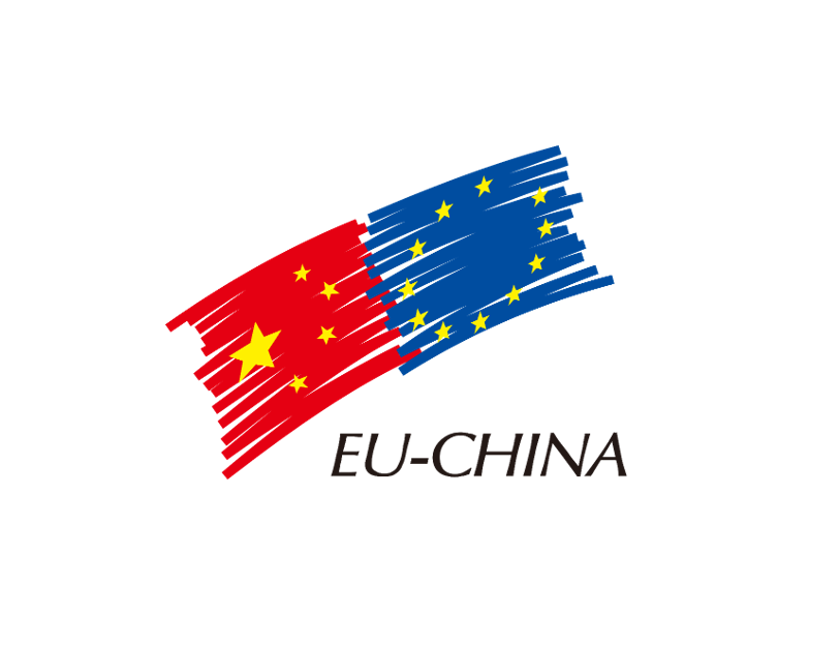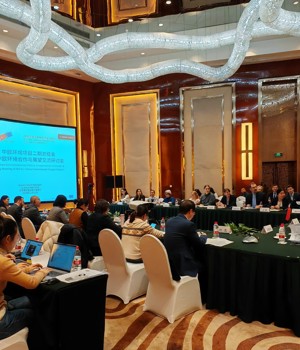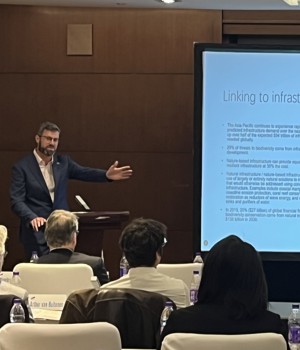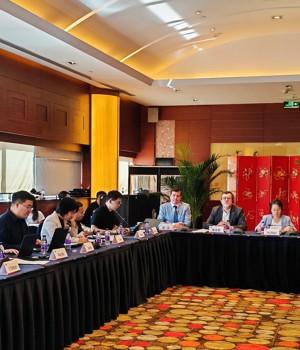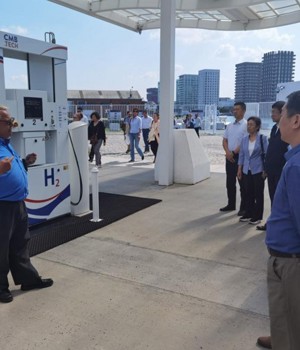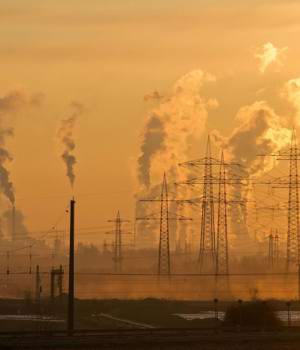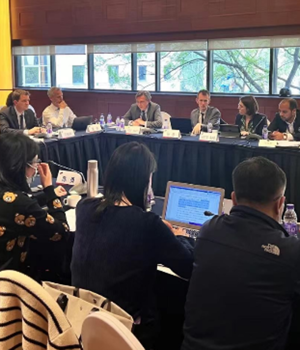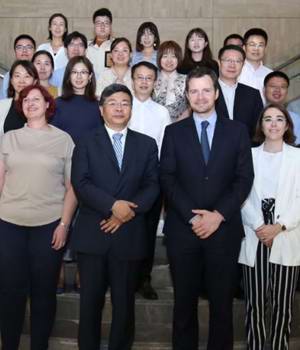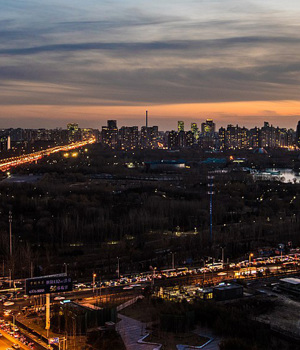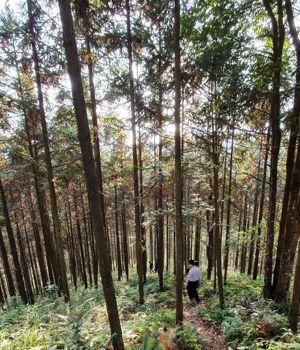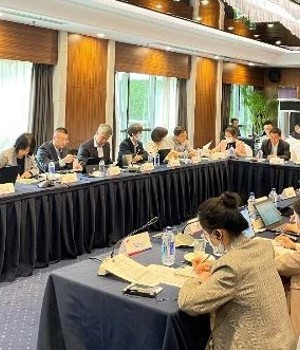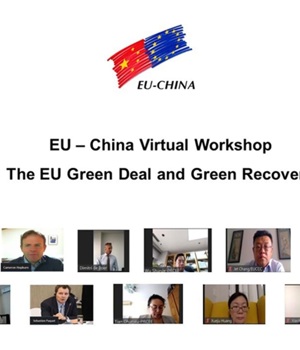-
EU-China Biodiversity Dialogue to support Global Biodiversity Framework
A series of biodiversity negotiators’ workshops were organized between 2018-2022 in the lead-up to the UN Convention on Biodiversity COP15, to build trust and consensus between both sides, contributing to the successful adoption of the Global Biodiversity Framework (GBF). The project continues to facilitate bilateral dialogue to support GBF implementation with a focus on policy mainstreaming and finance, through workshops, papers, and international policy exchanges.
-
Zero-Deforestation
A series of workshops and papers on zero-deforestation were organized under the project alongside the development of the EU Regulation on Deforestation-free Supply Chains, reaching various Chinese stakeholders from government, industry and NGOs. Through these activities, the project aims to provide a platform for both sides to engage in constructive exchanges to forge mutual understanding and cooperation in curbing global deforestation.
-
Plastics Management
The project shared EU experience of the development and implementation of the EU Plastics Strategy and provided recommendations for China to implement plastic pollution prevention policies and reduce plastic packaging waste. It also supports EU-China dialogue in plastics management, contributing to the advancement of a Global Plastics Treaty.
-
Chemicals Management
The project supports chemicals management dialogue by organising bilateral workshops, trainings, and papers to facilitate EU-China mutual learning on technical issues, to align practices between China’s latest framework for chemicals management and the EU Chemical Strategy for Sustainability.
-
Environmental permitting
The project supported the development and implementation of China’s National Pollutant Discharge Permitting Regulation, through training workshops, public comments to the draft regulation, and an in-depth comparative study to introduce EU experience. The Regulation was issued in January 2021, and has become the cornerstone for China’s pollution management system, also covering GHG emissions.
-
Integrated environmental policies for a green economy
The project carried out an in-depth study, a policy visit to Europe, and two workshops, focusing on how to ensure the integration of environmental policies, and mainstreaming of environmental considerations into broader economic policies, planning and legislation, which supported the drafting of the environmental chapter of China’s 14th Five Year Plan.
-
Global environmental governance
The project has organized a series of workshops and studies on green finance, green transport, river basin management, marine protection, environment and trade, the EU Green Deal and green economic recovery and other key topics related to global environmental governance. By bringing together policymakers and broader stakeholders, the project supports China in playing a more active role in global environmental governance.
Introduction
This project, funded by the EU Foreign Policy Instrument, supports cooperation between the EU and China on environmental policy, aiming to improve environmental protection standards and increase integration between the EU and China on environmental governance. Phase 1 of the project was implemented from January 2018 to June 2021, while Phase 2, which runs from July 2021 to December 2024 is currently ongoing. The project is implemented by a consortium including GOPA, Policy Research Center for Environment and Economy (PRCEE) of China’s Ministry of Ecology and Environment, and ClientEarth.
Environmental protection and green development are high priorities of the Chinese government. There are serious concerns about pollution, ecological degradation and climate change in China, and a recognition of the benefits associated with investing in green development. China can actively learn from policies, measures and technologies in the EU and other parts of the world to meet its environmental targets.
This project supports the ministerial-level EU–China Environmental Policy Dialogue (EPD), as well as the EU – China High Level Dialogue on Climate and Environment, which was established in September 2020, just before China’s President Xi Jinping made the pledge to achieve carbon neutrality by 2060.
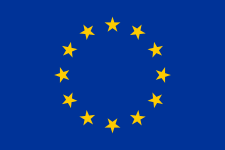
This project is funded by the European Union.
Highlights
Downloads
Chemicals Management Policies in Europe and China
Nature-based solutions: Lessons from European and Chinese case studies
Integrated Environmental Policies for Green Economy
EU-China Environment Project Highlights
Marine Plastics Pollution
Global Deforestation and Greening Commodity Supply Chains - Best Practices for Chinese Supply Chain Actors
China's Regulatory Framework on Pollutant Discharge Permits
Summary Report on Fourth Biodiversity Workshop (2020)
Summary Report of the Third Biodiversity Workshop (2019)
Summary Report of the Second Biodiversity Workshop (2019)
Summary Report of First Biodiversity Workshop (2018)
Global Governance and Ecological Civilization
Project details
Learn more about the project activities, objectives and background.
What are the project activities?
The project undertakes policy studies, and organises workshops, seminars and exchanges. The specific topics for each activity respond to the priorities identified by the EU-China Environmental Policy Dialogue.
Below is a summary of the activities that have been implemented during phase I of the project, and of the activities that are planned for phase II:
Activity 1: In-depth studies
1.1: In-depth study on the Formulation and Implementation of Pollutant Discharge Permits in China. This activity has contributed to the development and implementation of China’s National Pollutant Discharge Permitting Regulation. The final report was published in January 2021.
1.2: In-depth study on Integrated Environmental Policies for Green Economy. This activity has contributed to the better alignment of China’s policies on pollution prevention and control, ecological conservation and restoration, and climate change mitigation and adaptation, and their integration with broader economic policies.
1.3: In-depth study on Reducing Plastic Pollution. It particularly focuses on single-use plastics, use of alternatives, and a replicable model for reducing plastic packaging in e-commerce and express delivery at city level.
During phase II of the project, two further in-depth studies will be conducted. The first one will be entitled Green financial policies for pollution control and climate actions: a case study of green loan standards. It will focus on analysing existing green loan policies in China and sharing EU and international experiences, with the objective of supporting China’s targets of peaking emissions and achieving carbon neutrality and tapping into the potential of green loans in decarbonization, pollution control and green growth.
The other in-depth study will be on air pollution and carbon emission reductions from the transport sector. The study’s objective will be to review emission and pollution reduction policies, measures, and practices in the transport sector in both China and the EU, to summarise the experience in introducing integrated policies to achieve emission and pollution reduction in synergy based on case studies, identify challenges and propose recommendations for Chinese policymakers and enhance EU-China cooperation in the area.
Activity 2: Short papers
2.1: Global Governance and Ecological Civilization (2018). This short paper analyses the global environmental governance regime with a focus on the EU and China, and raises recommendations on cooperation opportunities in the areas of biodiversity, climate change and oceans. It is based on a high-level workshop held in Brussels in June 2018, in which EVP Frans Timmermans and other leaders participated (see activity 5.1).
2.2: Summary Report of First Biodiversity Workshop (2018). This short paper summarizes the first EU – China Workshop on Biodiversity, in preparation of COP15 (see activity 5.2). The focus is “Sharing perspectives on CBD implementation and options for the post-2020 Global Biodiversity Framework”.
2.3: Plastic Waste and Marine Plastic Pollution (2019). This short paper may have contributed to the development of China’s “Opinions on Further Strengthening Plastic Pollution Control”.
2.4: Summary Report of Second Biodiversity Workshop (2019). This short paper summarizes the second EU – China Workshop on Biodiversity, in preparation of COP15 (see activity 5.4). The focus is “Perspectives on biodiversity commitments, the 2030 Mission, the other elements of the post-2020 global biodiversity framework, and the Belt and Road Initiative.
2.5: Summary Report of Third Biodiversity Workshop (2019). This short paper summarizes the third EU – China Workshop on Biodiversity, in preparation of COP15 (see activity 5.5). The focus is “The road to COP15: 2030 Mission; Smart targets; Implementation, assessment, reporting, and review; ABCMs and ecological redlines”.
2.6 Summary Report of Fourth Biodiversity Workshop (2020). This short paper summarizes the fourth EU – China Workshop on Biodiversity, in preparation of COP15 (see activity 10.1). The focus is “Current status of global biodiversity framework and challenges, roles of ecosystem in pandemic risk, economic stimulus and biodiversity resource mobilization”.
2.7 Environmental Status and State of Play of Environmental Policies in China (2020). This short paper provides an update of progress and outstanding challenges in environmental policy. It may have contributed to the establishment of the EU – China High Level Dialogue on Climate and Environment.
In phase II of the project a further eight short papers will be produced on topical and emerging issues, and lessons from EU policy in the areas of pollution prevention and control, environmental governance, green growth and the circular economy
Activity 3: Training workshops
Four training workshops were held on best practices in the implementation of Pollutant Discharge Permits. Two trainings took place back to back in December 2018, in Hangzhou and Beijing, and another batch of two trainings took place in November 2019, in Guangzhou and Beijing. The combined number of participants from local environmental protection bureaus was over 200. The trainings were highly interactive, providing a forum for discussion. This activity has contributed to the development and implementation of China’s National Pollutant Discharge Permitting Regulation.
During phase II of the project there will be a total of three further training workshops for 30 central and provincial officials, legal officials and judges on good practices in implementation and enforcement of environmental legislation.
Activity 4: In-Depth Trainings
4.1: Cross-jurisdictional and river basin management legislation. A two-week in-depth training took place in December 2019 in Germany, with a group of 7 Chinese policy researchers and lawmakers. The activity contributed to the development of China’s Yangtze River Protection Law.
In phase II of the project a one-week training will be organized for up to 20 Chinese provincial officials to visit the EU, to look at environmental policy development, governance and law enforcement.
Activity 5 and 10: Expert Workshops
5.1 Workshop on Global Environmental Governance (June 2018). The workshop discussed the global environmental governance regime with a focus on the EU and China, and cooperation opportunities in the areas of biodiversity, climate change and oceans. EVP Frans Timmermans and other leaders participated.
5.2 First Biodiversity Workshop (October 2018). The focus was “Sharing perspectives on CBD implementation and options for the post-2020 Global Biodiversity Framework”.
5.3: Workshop on Plastic Waste and Marine Plastic Pollution (November 2018). This workshop may have contributed to the development of China’s “Opinions on Further Strengthening Plastic Pollution Control”.
5.4: Second Biodiversity Workshop (May 2019). The focus is “Perspectives on biodiversity commitments, the 2030 Mission, the other elements of the post-2020 global biodiversity framework, and the Belt and Road Initiative.
5.5: Third Biodiversity Workshop (October 2019). The focus is “The road to COP15: 2030 Mission; Smart targets; Implementation, assessment, reporting, and review; ABCMs and ecological redlines”.
5.6 Regional Environment Management Workshop (November 2019). Sharing experience on regional air pollution and river basin management. This activity contributed to the development of the Yangtze River Protection Law, and regional coordination of air pollution control.
5.7 Virtual Workshop on Access and Benefit Sharing in Biodiversity (May 2020). This workshop helped to develop a common understanding on issues of common concern and thus contribute to the preparation of COP15.
5.8 Virtual Workshop on EU Green Deal and Green Recovery (June 2020). This workshop was held part virtual, and part in-person in Beijing. Sharing experience on green fiscal stimulus measures. The workshop contributed to a green post-covid economic recovery.
10.1 Fourth Biodiversity Workshop (July 2020). This workshop was held part virtual, and part in-person in Beijing. The focus is “Current status of global biodiversity framework and challenges, roles of ecosystem in pandemic risk, economic stimulus and biodiversity resource mobilization”.
10.2 Virtual Workshop on EU Green Deal and Investment in the Energy Transition (October 2020). This workshop was held part virtual, and part in-person in Beijing. The workshop contributed to a green post-covid economic recovery.
10.3 Virtual Workshop on ABS and Digital Sequence Information in Biodiversity (January 2021). This workshop focused on understanding Digital sequence information on genetic resources (DSI), current practice of using DSI across the globe, and potential modalities for addressing the DSI challenge.
10.4 Workshop on Climate Mitigation - How to Decrease Domestic Emissions and Avoid Carbon Leakage (May 2021). This workshop, held partly online and partly in-person in Beijing, focused on how to reduce domestic emissions and prevent carbon leakage, providing a platform for dialogue between China and the EU on a potential carbon border adjustment mechanism (CBAM).
10.5 Workshop on Global Deforestation Prevention and Green Supply Chains (May 2021). This workshop, held partly online and partly in-person in Beijing, provided a platform to exchange industry best practices and effective policy measures to tackle deforestation from trade in soft commodities, and to promote joint efforts between China and the EU against global deforestation. A short paper was prepared ahead of the workshop, and finalized following the discussions.
During phase II of the project a total of seven expert workshops will be organized, bringing together small groups of Chinese and European policy makers, practitioners and experts to discuss topical issues for the development of environmental legislation, standards and green development. The first of the workshops, on Building Legal and Policy Systems for Zero-deforestation Supply Chains, took place in Beijing in April 2022. The workshop provided a platform to present the EU’s recent legislative proposal to minimize the presence of products associated with deforestation in the EU market, and gather feedback from relevant Chinese stakeholders on the proposal and on possible cooperation.
Activity 6: Policy Visit
6.1 Pollutant Discharge Permitting visit to Belgium and Germany (September 2018). This policy study visit is linked with the in-depth study on Pollutant Discharge Permit Regulation and Implementation, and the trainings on the same topic. Six Chinese officials participated. This activity has contributed to the development and implementation of China’s National Pollutant Discharge Permitting Regulation.
6.2 Integrated environmental management visit to Belgium and the UK (September 2019). This activity was linked with the associated in-depth study, and has contributed to the development of China’s “Guiding Opinions on Integrating and Strengthening Efforts in Climate Action and Ecological and Environmental Protection”, and has helped to accelerate China’s energy transition.
In phase II of the project there will be a further two policy visits to the EU for up to 8 senior officials or experts from China (depending on Covid-related travel restrictions). The aim is to allow them to meet and speak directly to a larger number of EU-based experts to gain first-hand knowledge on the development and implementation of new policies and on new approaches to environmental governance and green development, so that they can better use information on the EU’s experience in their work in China.
Activity 7: Knowledge Management
Starting in July 2021, an email newsletter in English on China's climate and energy policies is being distributed each week. The newsletter is received by officials in the EU and European governments as well as experts and journalists, helping to keep European governments and the EU updated about progress in China in terms of energy and climate policies and laws.
Activity 8: EU – China Environment Policy Cooperation Seminar
The purpose of this activity is to mark the successful implementation of the project, to share its achievements with relevant officials and the media, and to take a forward look at the next priorities for EU – China cooperation on environment and green development. The seminar to mark the end of phase I was held in Beijing in June 2021, and it saw the participation of high-level officials from the EU Delegation to China and from China’s Ministry of Ecology and Environment (MEE), Ministry of Commerce (MOFCOM), and Ministry of Foreign Affairs (MFA). Another such seminar will be held at the end of Phase II.
What are the background and objectives to the project?
Environmental protection and green development are high priorities of the Chinese government. There are serious concerns about air, water and soil pollution in China, but also a recognition of the economic and human health benefits associated with investing in green development. After the Chinese government pledge to peak carbon emissions before 2030 and achieve carbon neutrality before 2060, moving away from fossil fuels and decarbonizing the economy have become key national targets. A very broad range of policies, legislation, new implementation and enforcement measures are being developed and put into place at a rapid pace to meet environmental targets. One of the main challenges is implementation of environmental laws and standards at provincial and local level. China can actively learn from policies, measures and technologies, in the EU and other parts of the world, including very practical lessons from implementation, in building its own system adapted to China’s needs. China is experimenting with new policy approaches, technologies and other solutions that will have implications within China and beyond.
The EU and China have had a ministerial-level Environmental Policy Dialogue (EPD) since 2003. Through the policy dialogue, both sides agree on guiding principles for EU-China cooperation on a regular basis, and detailed subject areas and questions addressed are driven by the priorities on both sides. This created a need for a mechanism to quickly respond through policy exchange activities which can address new, sometimes very specialised technical questions as they arise.
The EU – China Environment Project (full name: EU-China Environment and Green Economy Programme) is supported by the European Union through its Foreign Policy Instrument. The overall objective is to reinforce EU-China cooperation on environment and green economy, supporting the EU-China environmental policy dialogue and helping to achieve higher environmental protection standards, more convergence between the EU and China on environmental governance and greater integration of environment into other areas of government decision making.
The overall objective of the project is to reinforce EU-China cooperation on the environment, support the EPD and help to achieve higher environmental protection standards, more convergence between the EU and China on environmental governance and greater integration of the environment into other areas of government decision making.
The project has set out to achieve three expected results:
- Support the EU-China environmental policy dialogue through activities that improve shared understanding, build knowledge on how to achieve better environmental protection and green development and establish good working contacts between EU and Chinese experts.
- Organize a range of activities that allow targeted and specialized expert exchanges as well as outreach actions to promote sharing of lessons and good practices in areas where the EU has substantial experience to offer China or where developments in China are of most relevance to the EU or to meeting their international commitments.
- In doing so, be responsive to both China's needs in terms of advice from European experiences on the design and implementation of environmental policies and as regards the EU international objectives such as green diplomacy enhancement.
Who is the project consortium?
GOPA - GOPA Consultants, is a leading German development consulting firm and one of the strongest consulting groups in Europe. Since its founding in 1965, GOPA has successfully implemented over 3,500 management and training projects for national and international financing agencies as well as private industry in more than 130 countries. Our reputation for excellence and efficiency is built on fifty years of planning and implementing technical assistance projects in developing and transition economies.
PRCEE - The Policy Research Centre for Environment and Economy (PRCEE) is an institution affiliated to Ministry of Environmental Protection (MEP), China. The mission of PRCEE is to offer policy support for the State’s macro decision-making and management over environmental protection based on the comprehensive and strategic researches of overall importance in the fields of environmental strategy, environment policy, environmental legislation and institution, and international environmental issues. PRCEE has conducted hundreds of national and ministerial policy research programs on environmental strategy, ecological civilization, green economy, green finance, environmental economic policy analysis, environmental public governance, environmental legislation, environment and society, global environmental governance, global sustainable development, environment and health, environment and trade and climate change.
ClientEarth - is a non-profit environmental law organisation, founded in 2008, with offices in London, Brussels, Warsaw, and Beijing. In 2012 BusinessGreen gave ClientEarth its NGO of the Year award. In 2013 ClientEarth was awarded the Law Society’s LSA Award for Excellence in Environmental Responsibility.
Contact details
Telephone: +86-10-84405941
Email: info.beijing@clientearth.org
Further information
More information related to EU–China cooperation can be found on the website for the EU Delegation to China: https://eeas.europa.eu/delegations/china_en
